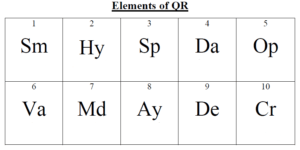21
Aug
2014
Teaching Overview
by Shawna K. Metzger
shawnakmetzger.com/wp/teaching/
Accessed June 8, 2025. Last modified April 15, 2020
I have taught on multiple occasions, both in USP and at Pittsburgh, William & Mary, and UVA. You can see the courses I have taught here. I received both USP’s Teaching Excellence Award and NUS’ Teaching Excellence Award in 2016, primarily for my QRF course. I again received USP’s Teaching Excellence Award and NUS’ Teaching Excellence Award in 2017, mainly for my duration course.
I am capable of teaching courses on IR theory, conflict and war, military alliances, international organizations, international law, territorial disputes, basic research design and methodology, linear regression, maximum likelihood, longitudinal analysis, duration models, spatial modeling, and programming in Stata.
Curriculum/Course Development
QRF Domain
My primary role in USP was as a member of the Quantitative Reasoning Foundation Domain. The QRF Domain is a multidisciplinary team, and at the time, consisted of Edmund Low, Philippe Raynal, Charles Burke, and me. We were responsible for managing the overarching curriculum for USP’s QRF course, which we wrote and guided through the approval process.
We published an article about our curriculum-writing experience for a quantitative course, focusing on a set of guiding questions that were invaluable during our own efforts.
QR Center
I was also the founding director of USP‘s QR Center, founded in 2015. The QR Center was a space for USP students to work on QR-related matters, either for their USP or home faculty coursework. USP students were hired as Quantitative Reasoning Assistants (QRAs), who staffed the Center during operating hours to address any patron queries. As the director, I was in charge of day-to-day operational matters, administrative matters such as payroll and report processing, conducting the training session at the beginning of every school year, initiating and running the QRA hiring process, and spearheading plans for the QR Center’s longer-term development. I relinquished the position in 2017.
Senior Seminar
I was also involved with USP’s Senior Seminar, the then-new capstone course. It was offered for the first time in spring 2015. The course is deliberately team-taught by instructors with different backgrounds. In the course’s first run, my co-instructors were Mark Brantner and Mabel Wong. My spring 2015 co-instructors and I were particularly interested in assessing the course’s effectiveness on a rolling basis. To that end, we have proposed an “evidence-based model of assessment” that we intend to employ after each semester ends. We were also awarded a large technology grant from NUS, to help develop an online platform for the course’s various assignments.

